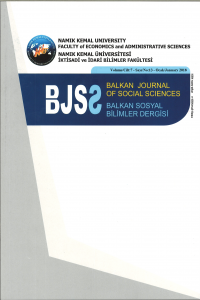POTENTIAL LEGAL PITFALLS FOR THE INTERNATIONAL COMPANY: NAVIGATING WORK LEAVE LAWS IN THE USA AND HUNGARY
Öz
The
American worker’s right to time off work for personal reasons as specified in a
federal statute, the 1993 Family and Medical Leave Act, is sparse relative to
the more liberal European rights. With a
focus on Hungarian law, this article compares these two bodies of law regarding
length of leave; reasons for leave; any conditions the worker must meet for
such entitlement; compensation during leave, if any; and consequences of abuse
of rights. A brief survey of comparable
laws in some other eastern European countries (Croatia, Poland, Czech Republic,
the Baltics, Finland, Bulgaria, Romania, and Turkey) shows the generous leave
right trend not apparent in American domestic law.
Typically,
European workers have statutory job security, whereas the several United States
generally recognizes the “employment-at-will” rule, permitting the employer to
terminate without cause. Only those
discharges based upon grounds specified in federal legislation—race, color,
religion, national origin, disability, or age—are prohibited. An exception to
this right-to-terminate applies to the worker during and immediately after
lawful leave
The
purpose is to present a guide for the enterprise doing business in both the USA
and Eastern Europe, in particular, Hungary.Many management prerogatives that
are taken for granted by American employers would impose considerable liability
in a European setting.
Anahtar Kelimeler
comparative law transnational commerce work leave laws social benefits termination rights
Kaynakça
- Connell, No More Half Measures: A Case-Based Approach for Addressing FMLA Abuse, 39 EMPLOYEE RELATIONS LAW JOURNAL 1 (2014)
- Rasnic, Germany’s Statutory Works Council and Employee Codetermination: a Model for the U.S.? 24 LOYOLA INTERNATIONAL AND COMPARATIVE LAW JOURNAL 275 (1992)
- Yang and Gimm, Caring for Elderly Parents: A Comparative Evaluation of Family Leave Laws, 42 JOURNAL OF LAW, MEDICINE, AND ETHICS 501 (2013)
- Determann and Sprague, Intrusive Monitoring: Employee Privacy Expectations are Reasonable in Europe, Destroyed in the United States, 26 BERKELEY TECHNOLOGY LAW JOURNAL 979 (2011)
POTENTIAL LEGAL PITFALLS FOR THE INTERNATIONAL COMPANY: NAVIGATING WORK LEAVE LAWS IN THE USA AND HUNGARY
Öz
Bu çalışma ABD ve Macaristan'da çalışma hayatının hukukunu gözden geçirerek uluslararası şirketler için potansiyel bir yasal tehlikeden bahsetmektedir.
Anahtar Kelimeler
karşılaştırmalı hukuk çokuluslu ticaret çalışma hayatı hukuku sosyal fayda sona erdirme hakkı
Kaynakça
- Connell, No More Half Measures: A Case-Based Approach for Addressing FMLA Abuse, 39 EMPLOYEE RELATIONS LAW JOURNAL 1 (2014)
- Rasnic, Germany’s Statutory Works Council and Employee Codetermination: a Model for the U.S.? 24 LOYOLA INTERNATIONAL AND COMPARATIVE LAW JOURNAL 275 (1992)
- Yang and Gimm, Caring for Elderly Parents: A Comparative Evaluation of Family Leave Laws, 42 JOURNAL OF LAW, MEDICINE, AND ETHICS 501 (2013)
- Determann and Sprague, Intrusive Monitoring: Employee Privacy Expectations are Reasonable in Europe, Destroyed in the United States, 26 BERKELEY TECHNOLOGY LAW JOURNAL 979 (2011)
Ayrıntılar
| Bölüm | AÇIK ERİŞİM POLİTİKASI |
|---|---|
| Yazarlar | |
| Yayımlanma Tarihi | 28 Ocak 2018 |
| Kabul Tarihi | 2 Ocak 2018 |
| Yayımlandığı Sayı | Yıl 2018 Cilt: 7 Sayı: 13 |


